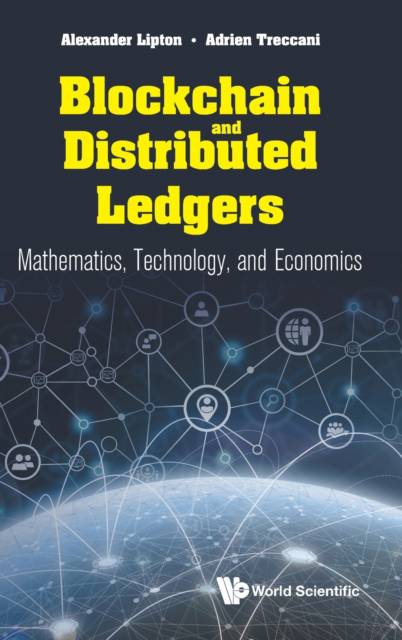
Je cadeautjes zeker op tijd in huis hebben voor de feestdagen? Kom langs in onze winkels en vind het perfecte geschenk!
- Afhalen na 1 uur in een winkel met voorraad
- Gratis thuislevering in België vanaf € 30
- Ruim aanbod met 7 miljoen producten
Je cadeautjes zeker op tijd in huis hebben voor de feestdagen? Kom langs in onze winkels en vind het perfecte geschenk!
- Afhalen na 1 uur in een winkel met voorraad
- Gratis thuislevering in België vanaf € 30
- Ruim aanbod met 7 miljoen producten
Zoeken
Blockchain and Distributed Ledgers: Mathematics, Technology, and Economics
Alexander Lipton, Adrien Treccani
Hardcover | Engels
€ 210,95
+ 421 punten
Uitvoering
Omschrijving
This textbook focuses on distributed ledger technology (DLT) and its potential impact on society at large. It aims to offer a detailed and self-contained introduction to the founding principles behind DLT accessible to a well-educated but not necessarily mathematically oriented audience. DLT allows solving many complicated problems arising in economics, banking, and finance, industry, trade, and other fields. However, to reap the ultimate benefits, one has to overcome some of its inherent limitations and use it judiciously. Not surprisingly, amid increasing applications of DLT, misconceptions are formed over its use. The book thoroughly dispels these misconceptions via an impartial assessment of the arguments rooted in scientific reasoning.Blockchain and Distributed Ledgers: Mathematics, Technology, and Economics offers a detailed and self-contained introduction to DLT, blockchains, and cryptocurrencies and seeks to equip the reader with an ability to participate in the crypto economy meaningfully.
Specificaties
Betrokkenen
- Auteur(s):
- Uitgeverij:
Inhoud
- Aantal bladzijden:
- 480
- Taal:
- Engels
Eigenschappen
- Productcode (EAN):
- 9789811221514
- Verschijningsdatum:
- 8/09/2021
- Uitvoering:
- Hardcover
- Formaat:
- Genaaid
- Afmetingen:
- 152 mm x 229 mm
- Gewicht:
- 807 g

Alleen bij Standaard Boekhandel
+ 421 punten op je klantenkaart van Standaard Boekhandel
Beoordelingen
We publiceren alleen reviews die voldoen aan de voorwaarden voor reviews. Bekijk onze voorwaarden voor reviews.









